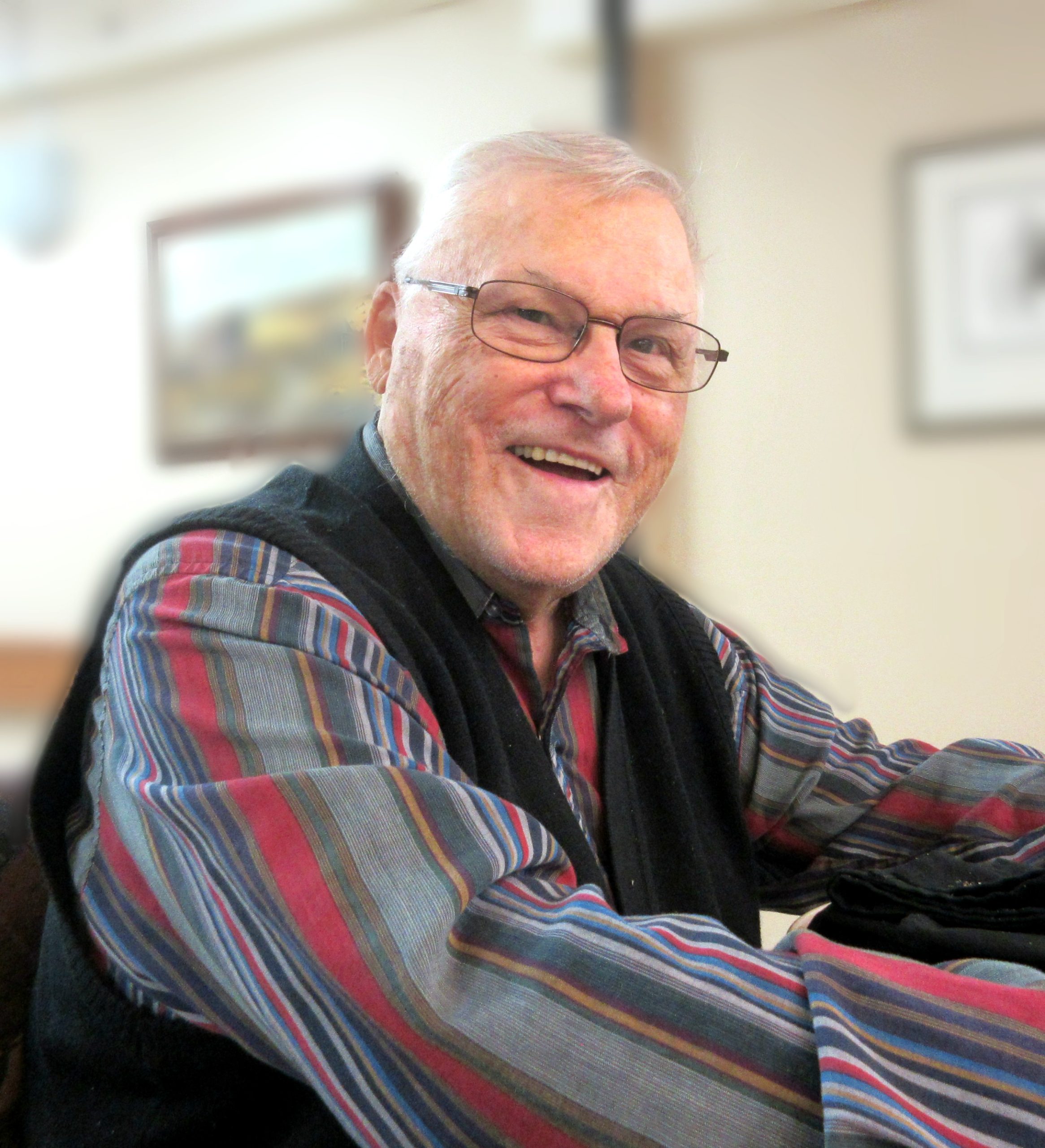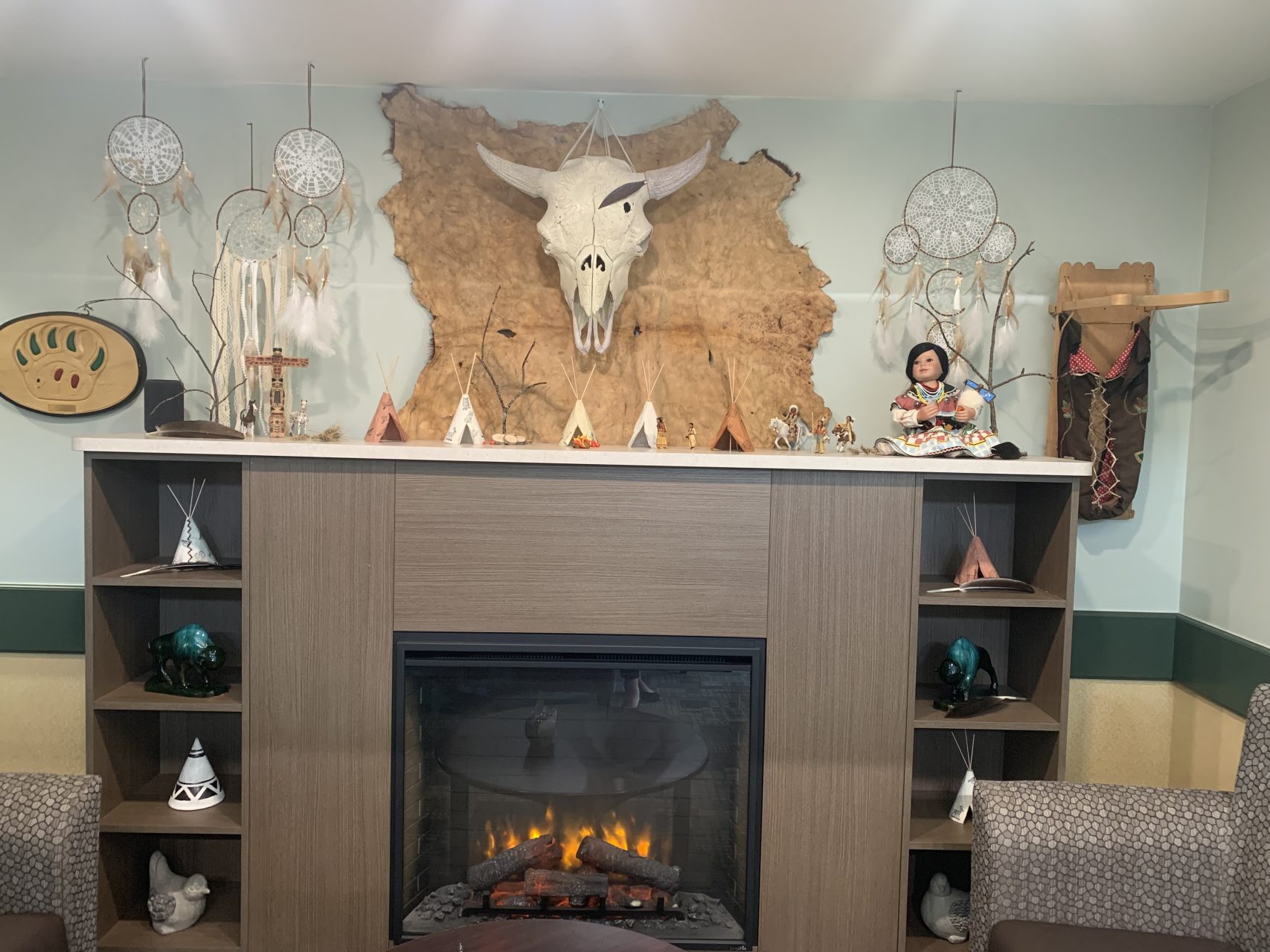

Fireplace Mantel at Smithfield Lodge
Dr. Chester Cunningham is a humanitarian and educator whose personal convictions about justice and equality have improved the quality of life for Aboriginal Peoples in Alberta, across Canada and around the world.
Chester Raymond Cunningham was born in Slave Lake, Alberta in 1933, the third child in a fourth generation Metis family. Chester credits his parents for instilling in him the character and strength that helped him to embrace life in a non-aboriginal society. He attended school in Wayne and St. Albert, where he excelled in sports. In 1952, he left high school to play semi-professional baseball. After retiring from his baseball career, Chester worked briefly in the Wayne coal mines and then spent several years working in the construction industry throughout northern Alberta. In 1964, he was hired by the Canadian Native Friendship Centre as a court worker and program director, helping native peoples deal with the justice system. He immediately demonstrated leadership qualities that promoted him to executive director by 1965, setting in motion a long list of achievements.
In 1970, Chester launched his own personal mission to bring about change, communication, and cultural understanding among the judicial and native communities. He was Founder and Executive Director of Native Court Worker Services, later to be called Native Counselling Services of Alberta. From 1970 to 1997, this agency grew from four court workers to more than 150 employees serving all of Alberta. Within its first five years, the organization set new standards when the number of aboriginal provincial inmates dropped from 56 per cent to 28 per cent.
To create this remarkable success, he relied on the traditional ways of the native community and involved elders whenever possible. A strong communicator, he negotiated fairly with both government bodies and native agencies, while maintaining the best interest of each group.
He was appointed a member of the Carson Committee examining management and operation of prisons and corrections in Canada and a delegate to the 7th United Nations Conference on Prevention of Crime and Treatment of the Offender in Milan, Italy. The governments of Australia, Japan, and the Soviet Union, as well as many other countries around the world have benefited from his expertise and insight.
In recognition of his devotion and determination, Chester Cunningham has received many awards and honors. A few of these include a Queens Medal for Achievement, Honorary Chief of the Pagan Tribe, the Aboriginal Achievement Award, the Alberta Achievement Award, a medallion from Prince Charles at Treaty 7 celebrations, Queens Jubilee Medals, and a lifetime membership for the Canadian Native Friendship Centre. The Aboriginal Students Council at the University of Alberta also recognized Dr. Cunningham for his contributions to the Native community and for his influence as a strong role model.
In 1989, he received an honorary Doctor of Laws degree from the University of Alberta recognizing his contribution to the correctional system. He was appointed a Member of the Order of Canada in 1993.
Chester married Elzaida McGhee, and they had one child. Elzaida already had five children. One day her children held Chester down on the lawn and said, “If you don’t adopt us, we won’t let you up” Chester had no choice and so he did. He subsequently adopted his foster son as well. In the end, Chester and Elzaida raised a family of seven — David, Calvin, Carola, Bill, Mark, Rosalie, and Frank, along with countless unofficial foster children.
Chester has done extensive traveling through the years. He has been to Australia, Malan, Hawaii, and the United States. He has been sought after as an innovator in the Aboriginal movement. He has been asked for his style of business and remarked that he ran his business like a ball club and like the Japanese by incorporating the employees’ families in the process.
Chester was on the Lac St. Anne Pilgrimage committee for several years and is board member on the Hazel Bluff Community Hall committee, which successfully built the new hall. He has been a board member of the Aboriginal Multi-Media Society of Alberta for almost four decades.

